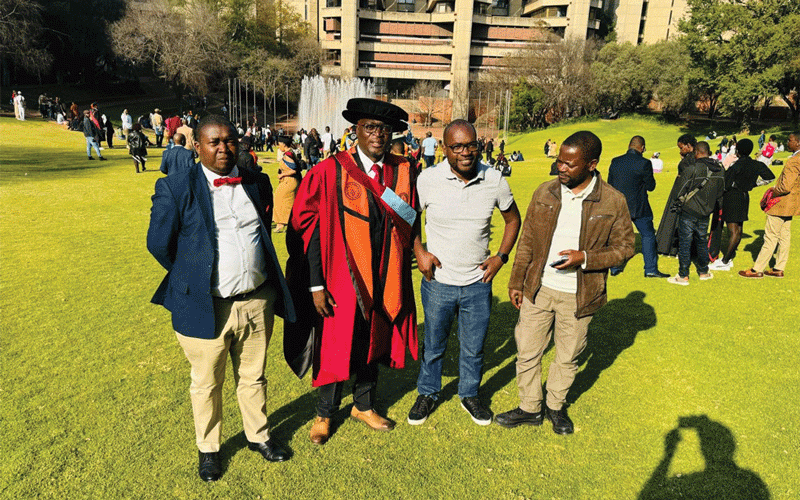
RESPECTED human rights defender Blessing Vava has graduated with a Doctor of Philosophy in Communication Studies.
His thesis was titled All-Weather Friend? Chinese ICTs in Zimbabwe as General Purpose Technologies (GPTs).
Vava, who is the current regional director for the Crisis in Zimbabwe Coalition, was conferred with the doctorate degree on Tuesday at the University of Johannesburg in South Africa.
His research investigated how Chinese ICTs in Zimbabwe could induce a paradigm shift, saying for this to happen, such technologies should first be seen as General Platform Technologies (GPTs).
“GPTs are a class of technologies that have profound effects on the social and economic aspects of societies. Vava’s study is almost prophetic in its anticipation of the emergence of a putative multipolar digital and communications order that is ICT-driven,” said a laudation read by his supervisor Nyasha Mboti.
“The study advances a new analytical framework that Vava calls the geosociotechnopolitical approach. This approach reaches beyond geoeconomics, technopolitics, technogeopolitics and geotechnopolitics, to propose a novel understanding of the interface of technology, history, geopolitics, international development, domestic politics, socialisation, local factors of production and socioeconomic conditions.”
GPTs are a class of technologies that induce profound effects on the social and economic life of societies at the national and global level.
Vava’s study focused on technological diffusion, pervasiveness and innovation as critical pathways for comprehending Zimbabwe’s development.
- Top rights defender Vava graduates with PhD
Keep Reading
“Zimbabwe has been struggling for over four decades to break free from the Rhodesian dual economic model which relies on the two general ‘platforms’ of mining and agriculture. This dual economic paradigm, being so entrenched, traps the country in a rinse and repeat pattern that is deficient of innovation and competitiveness,” Vava wrote in his abstract.
“I argue that Zimbabwe’s economic future hinges on how far the Rhodesian model is decentred, reconstituted and supplanted, a process which calls for a ‘jumpstart’ and ‘catching up’, however uneven. Chinese ICTs could be a gateway to this critical decentring and reconstitution. For that to happen, Chinese ICTs in Zimbabwe need to assume the role of general platforms.
“The study’s focus allowed for a deeper exploration of the complex relationship between China and Zimbabwe and its significance in geosociotechnopolitics and geosociotechnologies. In the study, which assumed that digital capitalism is transnationalised, the emergence of a multipolar global digital and communications order, and the putative importance of ICT-driven shifts in shaping geopolitical, socio-economic, and developmental discourse, are highlighted.”
A holder of a Bachelor of Arts Hons in Journalism and Media Studies and a Master of Arts in Journalism and Media Studies from the University of the Witwatersrand, Vava is a well-known human rights defender who has been detained on 17 occasions, tortured and persecuted for his stance against rights abuses and violations in Zimbabwe.










